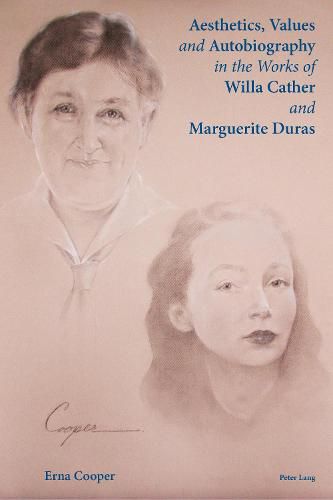Readings Newsletter
Become a Readings Member to make your shopping experience even easier.
Sign in or sign up for free!
You’re not far away from qualifying for FREE standard shipping within Australia
You’ve qualified for FREE standard shipping within Australia
The cart is loading…






Although separated by language and geography, Willa Cather and Marguerite Duras both explored the lives of women and children across the tumultuous twentieth century by drawing on their own experiences. This comparative critical study of Cather, a Pulitzer Prize-winning author, and Duras, winner of the Prix Goncourt and Cannes Film Festival award, reveals the blurring of fiction and autobiography in their works, focusing on their concerns for women, children and the socially marginalized. Relying on a corpus of novels, plays, films, letters and interviews, the study highlights questions about power and authority relevant to the study of feminism and women’s writing during and after the world wars.
Dominant themes include female adolescence and creative emergence, poverty, racism, immigrant and postcolonial life, psychosexual trauma, adult narcissism and child exploitation. The works explored also serve to examine the authors’ respective theories of art and changes in narration and genre that took place in twentieth-century women’s writing. This book highlights particular aesthetic elements and narrative strategies that are keys to missing knowledge about the writers’ childhoods, personal relationships and changing values, which when combined establish a poetics of loss.
$9.00 standard shipping within Australia
FREE standard shipping within Australia for orders over $100.00
Express & International shipping calculated at checkout
Although separated by language and geography, Willa Cather and Marguerite Duras both explored the lives of women and children across the tumultuous twentieth century by drawing on their own experiences. This comparative critical study of Cather, a Pulitzer Prize-winning author, and Duras, winner of the Prix Goncourt and Cannes Film Festival award, reveals the blurring of fiction and autobiography in their works, focusing on their concerns for women, children and the socially marginalized. Relying on a corpus of novels, plays, films, letters and interviews, the study highlights questions about power and authority relevant to the study of feminism and women’s writing during and after the world wars.
Dominant themes include female adolescence and creative emergence, poverty, racism, immigrant and postcolonial life, psychosexual trauma, adult narcissism and child exploitation. The works explored also serve to examine the authors’ respective theories of art and changes in narration and genre that took place in twentieth-century women’s writing. This book highlights particular aesthetic elements and narrative strategies that are keys to missing knowledge about the writers’ childhoods, personal relationships and changing values, which when combined establish a poetics of loss.